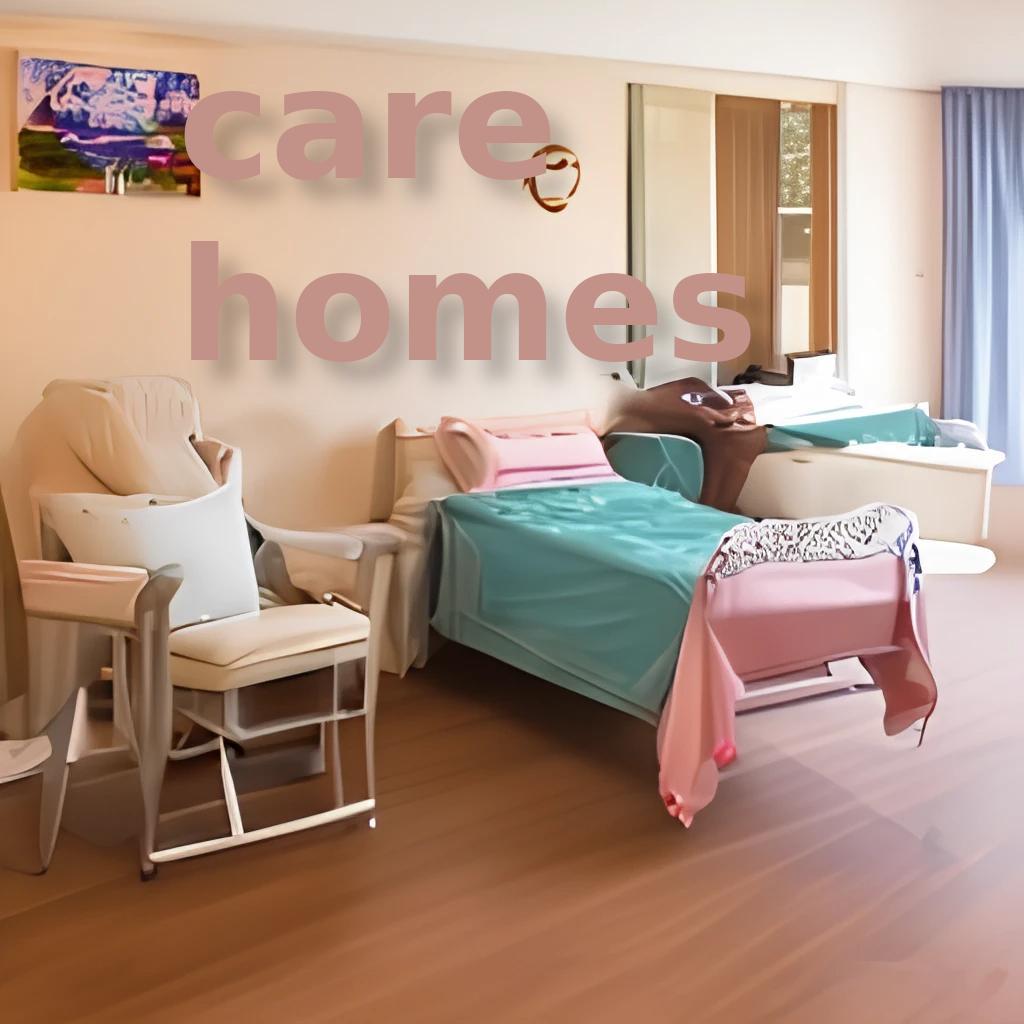


Care homes play a vital role in providing compassionate and supportive environments for individuals who require assistance with daily activities, healthcare, or specialized care. This comprehensive guide aims to explore the world of care homes, offering insights into the various aspects of residential care and providing useful tips for individuals and families navigating this important decision.
Understanding Care Homes:
Care homes, also known as residential care facilities, provide a supportive living environment for individuals who may need assistance with activities of daily living (ADLs), medical care, or specialized services. They offer a range of care options, catering to different needs and preferences.
Types of Care Homes:
Care homes vary in their focus and services. Some cater to elderly individuals, while others specialize in dementia care, rehabilitation, or provide care for those with specific medical conditions. Understanding the types of care homes available is crucial when considering the best fit for an individual's needs.
Assessing Care Needs:
Before choosing a care home, conduct a thorough assessment of the individual's care needs. Consider factors such as mobility, medical requirements, social preferences, and any specialized care needed. This assessment helps in identifying the most suitable care home environment.
Research and Recommendations:
Researching potential care homes is a crucial step in the decision-making process. Seek recommendations from healthcare professionals, friends, and family members. Read online reviews, visit the facilities, and speak with staff and residents to gain a comprehensive understanding of the care home's reputation and atmosphere.
Staff Qualifications and Training:
The expertise and training of care home staff are essential considerations. Inquire about the qualifications of caregivers, and nursing staff, and any specialized training they receive. Well-trained and compassionate staff contribute significantly to the quality of care provided.
Facility Amenities and Accessibility:
Assess the amenities and accessibility features of the care home. Consider communal spaces, outdoor areas, and the overall layout to ensure a comfortable and accommodating environment. Accessibility features are particularly important for individuals with mobility challenges.
Social and Recreational Activities:
A vibrant social environment is crucial for the well-being of residents. Inquire about the care home's social and recreational activities, including group outings, arts and crafts, music, and other engaging programs. A well-rounded activity schedule enhances the overall quality of life for residents.
Family Involvement:
Understand the care home's policies regarding family involvement. Regular communication, family visits, and participation in care planning contribute to a supportive and collaborative care environment. Family involvement is especially crucial for individuals with cognitive conditions.
Meal Plans and Dietary Considerations:
Assess the care home's meal plans and consider any dietary restrictions or preferences of the individual. A nutritious and well-balanced diet is essential for overall health, and care homes should accommodate special dietary needs as required.
Respecting Individual Preferences:
Recognize and respect the individual preferences of the resident. Whether it's privacy, cultural considerations, or specific routines, a care home should strive to tailor its services to meet the unique needs and preferences of each resident.
Financial Considerations and Legalities:
Understand the financial aspects of care home services, including fees, payment plans, and insurance coverage. Clarify any legal agreements, rights, and responsibilities to ensure a transparent and mutually beneficial arrangement for both the resident and the care home.
Regular Assessments and Adjustments:
Opt for a care home that conducts regular assessments of residents' needs and adjusts care plans accordingly. A proactive approach to care ensures that individuals receive the appropriate level of support as their needs evolve.
Care homes, also known as nursing homes or residential care facilities, are places where people who require support and assistance with activities of daily living can live and receive care. These homes provide a range of services to their residents, including assistance with personal care, medication management, meals, housekeeping, and social activities.
Care homes are typically designed for older adults who may have physical or cognitive impairments, but they may also be suitable for people with disabilities or chronic medical conditions. Care homes can be either publicly or privately funded, and can vary in terms of the level of care and services provided.
Residents of care homes typically have their own private room or shared room, and they have access to communal spaces such as dining areas, lounges, and gardens. Care homes are staffed by trained professionals such as nurses, care aides, and support staff who provide round-the-clock care and assistance to residents.
In some cases, care homes may offer specialized services such as dementia care, palliative care, or rehabilitation services. Care homes may also have partnerships with healthcare providers such as physicians, therapists, and social workers to provide additional support to residents.
It is important to note that care homes can vary widely in terms of the quality of care and services provided, and it is important to research and visit potential care homes before making a decision. Care homes may also have waiting lists, and it is recommended to plan ahead and explore options well in advance of needing care.
There are several types of care homes, each designed to meet the specific needs of different individuals. Here are some of the most common types of care homes:
Nursing Homes: These are facilities that provide medical care and support to people who require round-the-clock nursing care. Nursing homes are suitable for people with complex medical needs, such as those with chronic illnesses, disabilities, or dementia.
Residential Care Homes: These are facilities that provide a higher level of personal care and support to individuals who are no longer able to live independently. Residential care homes provide assistance with activities of daily living, such as bathing, dressing, and eating, as well as social activities and outings.
Dementia Care Homes: These are facilities that specialize in providing care and support to individuals with dementia or other forms of cognitive impairment. Dementia care homes are designed to be safe and secure environments, with staff trained to provide specialized care and support to residents.
Palliative Care Homes: These are facilities that provide end-of-life care and support to individuals with life-limiting illnesses. Palliative care homes focus on providing comfort and quality of life to individuals and their families during their final stages of life.
Rehabilitation Care Homes: These are facilities that provide short-term care and support to individuals who are recovering from illness, injury, or surgery. Rehabilitation care homes provide specialized care and support to help individuals regain their strength and independence.
Respite Care Homes: These are facilities that provide temporary care and support to individuals who require assistance with daily activities. Respite care homes can provide relief for caregivers, as well as a safe and supportive environment for individuals in need of temporary care.
If you are considering sending a relative to a care home, there are several things you should know and consider beforehand:
Do your research: Research different care homes and visit them in person if possible. Look at online reviews and speak with people who have used the facility to get a sense of the quality of care provided.
Consider the cost: Care homes can be expensive, so it is important to consider the cost and whether it is feasible for you and your family. Look into different funding options, such as government subsidies or insurance coverage.
Evaluate the services offered: Make sure the care home offers the services your relative needs, such as medical care, assistance with daily living activities, and social activities.
Talk to the staff: Speak with staff members to get a sense of their experience and the level of care they provide. Ask about staff-to-resident ratios, staff training, and qualifications.
Visit the facility: Visit the care home in person and observe the atmosphere and living conditions. Pay attention to cleanliness, noise levels, and general demeanor of the staff and residents.
Consider your relative's preferences: Take into account your relative's preferences and needs, such as location, dietary requirements, and social preferences.
Understand the admission process: Understand the admission process, including the necessary paperwork and medical evaluations.
It is important to carefully evaluate different care home options and consider all factors before making a decision. Keep in mind that transitioning to a care home can be a difficult and emotional process, so it is important to provide support and communication throughout the process.
Choosing a care home is a significant decision that requires careful consideration of the individual's needs, preferences, and the offerings of the facility. By conducting thorough research, seeking recommendations, and actively participating in the decision-making process, individuals and their families can ensure a supportive and enriching living experience in a care home setting.
Warm regards,

We use cookies
We use cookies and other tracking technologies to improve your browsing experience on our website, to show you personalized content and targeted ads, to analyze our website traffic, and to understand where our visitors are coming from. Privacy Policy.